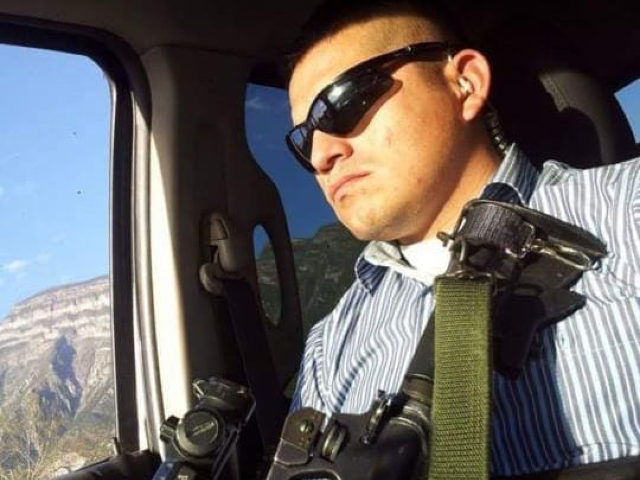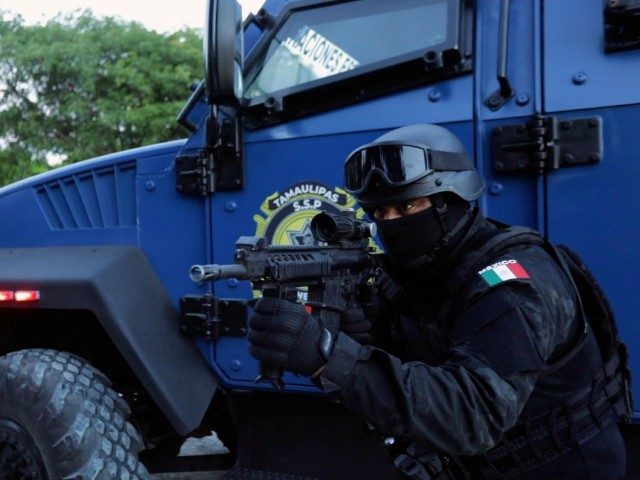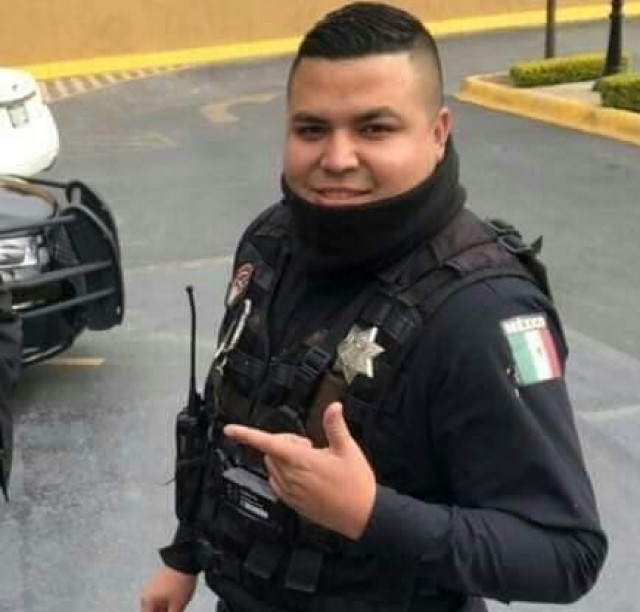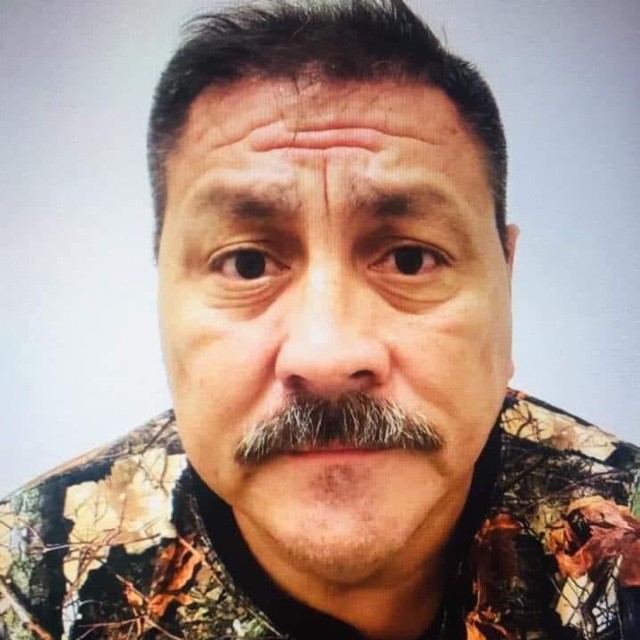Afghanistan, the Southern U.S. Border and Biden's Intentions
The time for choosing is here.
28 comments
The debacle in Afghanistan is still unfolding, but it is already one of the signal disasters of American history. It’s usually premature to assess contemporary events in history’s light, so it’s a sign of just how bad things are in Kabul that I — a historian — am ready to put it alongside the Bay of Pigs, the Fall of Saigon, the Black Hawk Down incident, and 9/11 itself in the list of era-defining American humiliations. It’s bad enough that it’s happening - what’s worse is that we chose it.
And it’s not an aberration for our unmoored American federal government regardless of who occupies the White House or controls Congress. Confronted with a whole summer of insurrectionary violence in American cities, it can’t seem to bring itself to guarantee public order. Confronted with angry citizens overrunning the very seat of its rule on Capitol Hill, it can’t seem to defend itself. Confronted with a metastasizing narco-state threat in Mexico, and a historic crisis of human trafficking overwhelming national borders, it can’t seem to do much but watch.
Yet when confronted with states organizing in blocs to execute tasks reserved to itself — the so-called “Western States Pact” comes to mind, as do the various states sending forces to the U.S.-Mexico border — the federal government seems strangely passive and inert. Perhaps that’s to the good.
It’s tempting to look at unforced errors like this in isolation, just one episode among many. We shouldn’t. The truth is that Afghanistan is part of a larger pattern. Pull the camera back a bit, and the picture becomes more disturbing than even the grim images from Kabul’s beleaguered airport. The incompetence on display in that country is just the latest episode of blundering from a federal government that increasingly cannot do anything it should.
The national government as envisioned and established by the American Founders has just one purpose, succinctly set forth in the Declaration of Independence: “to secure these rights.” Since then, Americans have come to expect federal governance in Washington, D.C., to fulfill an array of roles. For most of American history, it did a credible job of meeting those expectations. Americans of my parents’ generation, for example, reasonably expected the federal government to successfully defend them from enemies abroad and secure law and order at home. They expected it to meet the challenge of public health crises, and run an efficient immigration system. They expected it to assert a monopoly on national authority, and to promote and defend a common American civic narrative.
They expected these things because it routinely delivered on those expectations. No longer. Suddenly, catastrophically, the recent past reveals that the federal government in Washington D.C. cannot be relied upon to do any of these things.
It’s a shocking realization for Americans who grew up secure in the promise of American governance. It’s less shocking for those of us who have been watching the erosion of civic order for some time. For the past half-century, the defining phenomenon of American civics has been the collapse of institutional trust. Americans who used to believe in the mediating institutions of society, from the presidency to the Elks Club to the U.S. Postal Service to organized religion and beyond, no longer do. That isn’t because the people have failed the institutions. It’s the other way around. The only institution that survived the generational collapse in popular trust was the military. It remains to be seen whether the blundering end to the Afghanistan war changes that. My guess is Americans will continue to respect and admire the men and women who choose to serve — and cast an increasingly skeptical eye on a class of generals and admirals who haven’t delivered a definitive American wartime victory in over 30 years.
In the 1926 novel The Sun Also Rises, Hemingway has Bill Gorton ask Mike Campbell how he went bankrupt. “Two ways,” comes the answer, “Gradually and then suddenly.” The diminishment to impotence of the federal government is like that. We’re in the “suddenly” phase now. One moment you’re a citizen of a well-running republic. The next moment you see that the federal government seems unable to fulfill its most basic responsibilities. Confronted with aggressive attacks on the common civic narrative that is the prerequisite for any national existence, it can’t seem to do anything but capitulate to the attackers. Confronted with the very same people who attacked America on 9/11, it can’t seem to figure out how to avoid yet another humiliation at their hands.
If the federal government can’t win a war, can’t preserve law and order, can’t secure its own seat of governance, can’t control the border, and can’t defend the idea of America, then what can it do? Well, it can collect taxes. It can also guarantee lucrative employment for a class of elite mediocrities who will never endure consequences for their growing list of failures. As I write this, the president is reported to have refused to fire anyone for the Afghanistan disaster. That isn’t because the buck stops with him; sacking someone would just be, as Axios reports, “tantamount to admitting a mistake.”
It’s hard to blame President Biden. If the administration admits one mistake, where will it end? Its list of mistakes is long, and acknowledging them all would constitute an existential threat.
The most serious mistake we Americans now confront is our toleration of them. It’s time to stop. We as a society long ago lost confidence in these institutions, and the institutions are at fault for it. When we see thousands of Americans trapped in Kabul by fanatical tribesmen, and the Chief Executive of the United States asserting his powerlessness on national television, we know something has gone profoundly wrong. We also know this is a culmination, and it’s up to us to determine what comes next.
Yet now is no time for despair. As Chesterton reminds us, “Despair does not lie in being weary of suffering, but in being weary of joy.”
The bad news is the crisis in America’s federal government. The good news is we have plenty of working and responsible governments in our states. In that light, the way forward isn’t to wait for Washington D.C. to be fixed, or to hope that President Biden develops the personal maturity to admit error. Our hope is in turning to the states, and demanding they step up where the federal government has stood down.
It’s a tall order. But, to paraphrase Thatcher, there is no alternative. As Washington D.C. abdicates its duties, governors must take the helm. What this looks like in the specifics varies from state to state. No state will be able to set Afghanistan right, for example. But are states able, singly and in concert, to do things like control the border? Can they guarantee law and order? Can they bring common sense to public health? Can they defend our common civic faith and narrative? Can they “secure these rights”?
They can — if they choose to. The time for choosing is here. For Austin, and Tallahassee, and 48 other state capitols, the paralysis of D.C. is a call to act.
Kevin Roberts, Ph.D., is the Chief Executive Officer of the Texas Public Policy Foundation.
Criminal Migrants, Gang Members Apprehended by Border Patrol Up 265 Percent

As the number of economic migrants apprehended climbs daily, those with previous criminal convictions or affiliated with violent gangs follow the trend. In the current fiscal year, according to a source within CBP, nearly 9,000 criminal migrants have been arrested. The agency reports another 279 criminal gang members were caught during the same time period. These figures contrast against 2,438 criminal migrant arrests in 2020.
The term “criminal alien” is not used by Border Patrol to refer to migrants with only immigration violations. It is reserved for those with convictions for state and federal crimes like murder, rape, sexual assault, burglary, robbery, narcotics, and more.
The source, speaking on the condition of anonymity, says nearly 1,000 migrants had convictions for assault and battery; nearly 50 were convicted of homicide; nearly 400 were convicted of sexual offenses. The number of criminal migrant encounters has risen by nearly 50 percent since May.
Most of these individuals are returning to the United States illegally after deportations. Although they constitute a minority of the migrants encountered by the Border Patrol, criminal migrant and gang member encounters play out daily along the southwest border.
On Tuesday, Border Patrol agents in Eagle Pass, Texas, arrested a female migrant. After reviewing her criminal history, agents quickly discovered she was convicted of 3rd degree homicide in Pennsylvania. After serving a 15 to 30-year sentence, she was removed in 2019.
On Friday morning, agents in Hidalgo, Texas, arrested an Ecuadoran national shortly after he crossed the Rio Grande. The arresting agents discovered a previous arrest and conviction in New York for sexual abuse involving a victim under than 13 years of age.
Hours later, agents working near Los Ebanos, Texas, apprehended a group of nine. Among them was a Guatemalan whose criminal history revealed he previously served four years for a sex crime in Angleton, Texas, in 2011. The migrant is a registered sex offender.
During the week of August 22-28, seven suspected gang members were arrested in the Rio Grande Valley. Five were linked to the MS-13, one to the 18th Street gang, and another to the Sureño-13. The Sureño-13 member was found to have a previous conviction for kidnapping and domestic violence in Los Angeles, California. Of the 279 criminal gang members arrested by Border Patrol nationwide, more than 150 were caught crossing in the Rio Grande Valley.
With migrant apprehensions nearing an all-time high this fiscal year, the Border Patrol is struggling to carry out routine field operations while it provides humanitarian aid required by thousands of migrants in detention.
The Border Patrol has apprehended more than 1.2 million migrants since October 2020. Most are fleeing their countries for economic or political reasons. Less than 1% of all encounters involve those who meet the definition of criminal or are known to have gang affiliations.
Randy Clark is a 32-year veteran of the United States Border Patrol. Prior to his retirement, he served as the Division Chief for Law Enforcement Operations, directing operations for nine Border Patrol Stations within the Del Rio, Texas, Sector. Follow him on Twitter @RandyClarkBBTX.
EXCLUSIVE: Mexican Cop Arrested in Border State Kidnapping Case Had Deep Cartel Ties

An investigation into a squad of 10 Mexican police officers behind a cartel kidnapping in the border state of Nuevo Leon helped uncover the extensive criminal background of one who acted as the link between cartels and cops.
This week, detectives with the Nuevo Leon State Investigations Agency raided the police station in San Pedro to arrest seven officers on kidnapping charges. San Pedro is a wealthy suburb of the Monterrey metropolitan area. On Wednesday, state investigators arrested three more San Pedro officers on the same charges. The officers are accused of kidnapping a U.S. citizen who reported a break-in at his house, however, instead of helping, they turned him over to an independent criminal organization known as “The Office” (La Oficina). That organization was at one time part of the Beltran Leyva Cartel but broke away with Jose Rodolfo “El Gato” Villarreal Hernandez, a man listed as one of the FBI’s Most Wanted Fugitives.
One of the 10 officers, Oscar Eduardo Medellín López, was on the radar of law enforcement agencies at the state and federal levels for his connections to different cartels, U.S. law enforcement sources working in Mexico revealed to Breitbart Texas.
Medellin was the bodyguard of Antonio Lucas Martínez, the former public security secretary of San Pedro and most recently Montemorelos. Breitbart Texas recently exposed Lucas Martinez and the Mayor of Montemorelos Luis Fernando “El Dragón” Garza Guerrero for helping the Sinaloa Cartel get a foothold into Nuevo Leon by establishing heavily armed strike teams.
Information provided to Breitbart Texas by the U.S. law enforcement sources revealed that since then, the Sinaloa Cartel has expanded its presence in Nuevo Leon and has been using San Pedro as part of its operation to establish stash houses and carry out deals. It remains unclear if the Sinaloa Cartel is paying El Gato’s organization to avoid conflict or if they established a formal alliance.
Additional information revealed that in 2019, authorities arrested Medellin with $800,000 pesos ($40,000) and a list of police officers working with cartels. The officer also had a list of the street-level drug distribution stores in Montemorelos. The case against Medellin at the time was initially described as being under investigation by Nuevo Leon’s State Public Security Secretary Aldo Fasci, but under his watch, the case went cold. Several cases dealing with police corruption have been shelved by Fasci, particularly those dealing with El Gato’s criminal organization.
Ildefonso Ortiz is an award-winning journalist with Breitbart Texas. He co-founded Breitbart Texas’ Cartel Chronicles project with Brandon Darby and senior Breitbart management. You can follow him on Twitter and on Facebook. He can be contacted at Iortiz@breitbart.com.
Brandon Darby is the managing director and editor-in-chief of Breitbart Texas. He co-founded Breitbart Texas’ Cartel Chronicles project with Ildefonso Ortiz and senior Breitbart management. Follow him on Twitter and Facebook. He can be contacted at bdarby@breitbart.com.
Gerald “Tony” Aranda is an international journalist with more than 20 years of experience working in high-risk areas for print and broadcast news outlets investigating organized crime, corruption, and drug trafficking in the U.S. and Mexico. In 2016, Gerald took up the pseudonym of “Tony” when he joined Breitbart Texas’ Cartel Chronicles project. Since then, he has come out of the shadows and become a contributing writer for Breitbart Texas.
Gulf Cartel Enforcer’s Arrest Uncovers Police Corruption in Mexican Border City

The recent arrest of a top enforcer for the Gulf Cartel uncovered a network of corruption among local, state, and federal officials providing information and favors to the criminal organization. One of the top law enforcement officers in the area was allegedly engaging in a romantic affair with the cartel strongman in question.
Breitbart Texas first broke the news of the arrest of Oscar Antonio “La Droga or Ciclon 89” Lopez Sandoval. Lopez Sandoval was near a beach in Matamoros on a fishing outing. He has since been taken to the Tamaulipas capital where he was formally charged with murder.
During the arrest, authorities also collared Olivia Ambriz Aguilar, a state ministerial agent who serves as the personal assistant to the regional delegate of the Tamaulipas Attorney General’s Office in Matamoros. Ambriz Aguilar allegedly carried out a romantic affair with Comandante Droga, according to law enforcement sources. She is a 15-year veteran of the law enforcement agency. The official remains in custody and is expected to appear before a judge on corruption charges in short order.
In the aftermath of the initial arrest, authorities captured Eutimio “Escorpion 24” Chavez Ruelaz, a Gulf Cartel operator who is one of the alleged links between the criminal organization and law enforcement in Matamoros. The suspect remains in police custody.
Authorities are currently looking at several Tamaulipas state police officers assigned to Matamoros as part of a corruption probe for intelligence leaks and collaboration with the dominant cartel.
Editor’s Note: Breitbart Texas traveled to the Mexican States of Tamaulipas, Coahuila, and Nuevo León to recruit citizen journalists willing to risk their lives and expose the cartels silencing their communities. The writers would face certain death at the hands of the various cartels that operate in those areas including the Gulf Cartel and Los Zetas if a pseudonym were not used. Breitbart Texas’ Cartel Chronicles are published in both English and in their original Spanish. This article was written by “J.A. Espinoza” and “J.C. Sanchez” from Tamaulipas.





No comments:
Post a Comment